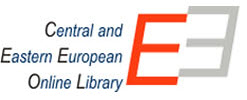Teachers’ Perception of the Influence of the Teaching Context on Cognitive Achievements in General Technology Education
DOI:
https://doi.org/10.23947/2334-8496-2020-8-SI-1-15Keywords:
teaching context, contextual approaches, elements of teaching context, cognitive achievements, technology educationAbstract
High achievements in the cognitive domain are the ultimate goal of any education, within it is important to understand the role of the teaching context. In this regard, the purpose of this research was to determine how teachers perceive the role of the teaching context on the pupils’ achievements in the cognitive domain in general technology education. For this purpose, a survey of teachers’ perception towards the influence of isolated elements of the teaching context, specific to technology education, on the achievements of learning objectives was conducted. The study was conducted as a survey on a stratified sample of technology education teachers (N = 194) from Croatia. ANOVA repeated measurements statistical procedure was used to process the research results. The analysis of the results showed that teachers give preference to certain contextual elements over others. These are activities with technological artifacts, models and simulations, service-learning activities, field trips, work in an appropriate space and the student’s presentation of their own results. These elements can be considered as a contextual basis for the cognitive development of pupils in general technology education. Teachers’ perception of the influence of other elements of the teaching context is not negligible, but obviously there is no priority over these elements, which is why further research is needed.
Downloads
References
Abudu, K. A., & Gbadamosi, M. R. (2014). Relationship between teacher’s attitude and student’s academic achievemnt in senior secondary school chemistry. A case study of Ijebu-Ode and Odogbolu Local Government Area of Ogun state. Wudpecker Journal of Educational Research, 3(3), 035-043.
Albion, P. R. (1999). Self-efficacy beliefs as an indicator of teachers’ preparedness for teaching with technology. In Society for Information Technology & Teacher Education International Conference (pp. 1602-1608). Association for the Advancement of Computing in Education (AACE). Retrieved from https://www.learntechlib.org/primary/p/8156/
Archambault, I., Janosz, M., & Chouinard, R. (2012). Teacher beliefs as predictors of adolescents’ cognitive engagement and achievement in mathematics. The Journal of educational research, 105(5), 319-328. https://doi.org/10.1080/00220671.2011.629694
Ashton, P. T., & Webb, R. B. (1986). Making a difference: Teachers’ sense of efficacy and student achievement. Longman Publishing Group.
Bandura, A. (1986). Social foundations of thought and action. Englewood Cliffs, NJ, 1986, 23-28.
Bandura, A. (1997). Self efficacy: The exercise of control, New York: Freeman.
Bateson, G. (1972). Steps to an ecology of mind. Northvale, NJ: Jason Aronson.
Bell, R. L., Maeng, J. L., & Binns, I. C. (2013). Learning in context: Technology integration in a teacher preparation program informed by situated learning theory. Journal of Research in Science Teaching, 50(3), 348-379.
Berns, R. G., & Erickson, P. M. (2001). Contextual teaching and learning: Preparing students for the new economy (Vol. 5). Columbus: National Dissemination Center for Career and Technical Education.
Biggs, J. (1996). Enhancing teaching through constructive alignment. Higher education, 32(3), 347-364.
Biggs, J., Kember, D., & Leung, D. Y. (2001). The revised two-actor study process questionnaire: R-SPQ-2F. British journal of educational psychology, 71(1), 133-149.
Brown, B. L. (1998). Aplying Constructivism in Vocational and Career Education, Information Series no. 378. Columbus: ERIC Clearinghouse on Adult, Career, and Vocational Education, Center on Education and Training for Employment, the Ohio State University. Retrieved from https://files.eric.ed.gov/fulltext/ED428298.pdf
Buckley, J., Archibald, T., Hargraves, M., & Trochim, W. M. (2015). Defining and teaching evaluative thinking: Insights from research on critical thinking. American Journal of Evaluation, 36(3), 375-388. https://doi.org/10.1177/109821405581706
Cohen, J. (1973). Eta-Squared and Partial Eta-Squared in Fixed Factor Anova Designs. Educational and Psychological Measurement, 33, 107-112, https://doi.org/10.1177/001316447303300111
Cohen, J. (1992). A Power Primer. Psychological Bulletin, 112(1), 155-159.
De Vries, M. J. (2016). Teaching about technology: An introduction to the philosophy of technology for non-philosophers. Springer. Retrieved from https://link.springer.com/book/10.1007%2F978-3-319-32945-1
Ekperi, P., Onwuka, U., & Nyejirime, W. (2019). Teachers’ Attitude as a Correlate of Students’ Academic Performance. International Journal of Research and Innovation in Social Science (IJRISS), 3(1), 205-209.
Gardner, H. (1993). Frames of Mind: The Theory of Multiple Intelligences. NY: BasicBooks.
Goddard, R. D., & Goddard, Y. L. (2001). A multilevel analysis of the relationship between teacher and collective efficacy in urban schools. Teaching and Teacher Education, 17(7), 807-818. https://doi.org/10.1016/S0742-051X(01)00032-4
Harwell, M. R., Rubinstein, E. N., Hayes, W. S., & Olds, C. C. (1992). Summarizing Monte Carlo results in methodological research: The one-and two-factor fixed effects ANOVA cases. Journal of educational statistics, 17(4), 315-339. https://doi.org/10.3102/10769986017004315
Johnson, E. B. (2002). Contextual teaching and learning: What it is and why it’s here to stay. Thousand Oaks, CA: Corwin Press, INC.
Jones, A., Buntting, C., & de Vries, M. J. (2013). The developing field of technology education: A review to look forward. International Journal of Technology and Design Education, 23(2), 191-212. https://doi.org/10.1007/s10798-011-9174-4
Jordan, A. (2018). The supporting effective teaching project: 1. Factors influencing student success in inclusive elementary classrooms. Exceptionality Education International, 28(3), 10-27. https://doi.org/10.5206/eei.v28i3.7769
Kelley, T. R., & Kellam, N. (2009). A theoretical framework to guide the re-engineering of technology education. Journal of Technology Education, 20(2), 37. Retrieved from https://digitalcommons.usu.edu/ncete_publications/33/
Knoblauch, D., & Hoy, A. W. (2008). Maybe I can teach those kids.” The influence of contextual factors on student teachers’ efficacy beliefs. Teaching and Teacher Education, 24(1), 166-179. https://doi.org/10.1016/j.tate.2007.05.005
Krathwohl, D. R. (2002). A revision of Bloom’s taxonomy: An overview. Theory into practice, 41(4), 212-218. https://doi.org/10.1207/s15430421tip4104_2
Labone, E. (2004). Teacher efficacy: Maturing the construct through research in alternative paradigms. Teaching and teacher education, 20(4), 341-359. https://doi.org/10.1016/j.tate.2004.02.013
Lix, L. M., Keselman, J. C., & Keselman, H. J. (1996). Consequences of assumption violations revisited: A quantitative review of alternatives to the one-way analysis of variance F test. Review of educational research, 66(4), 579-619. https://doi.org/10.3102/00346543066004579
Malinar, J. B. (2008). Nastava tehničke kulture u osnovnim školama Hrvatske [Teaching technical culture in primary schools in Croatia]. In D. Labaš (Ed.), 40 godina zajedno: i pola stoljeća nastave tehničke kulture u našim osnovnim školama (pp 59–86). Zagreb: Hrvatski savez pedagoga tehničke kulture.
Mitcham, C. (1994). Thinking through technology: The path between engineering and philosophy. University of Chicago Press.
MSES/MZOŠ. (2006). Teaching programmes for compulsory education (pp. 304–309).
Nespor, J. (1987). The role of beliefs in the practice of teaching. Journal of curriculum studies, 19(4), 317-328. https://doi.org/10.1080/0022027870190403
Pajares, M. F. (1992). Teachers’ beliefs and educational research: Cleaning up a messy construct. Review of educational research, 62(3), 307-332. https://doi.org/10.3102/00346543062003307
Petrina, S. (1992). Curriculum change in technology education: a theoretical perspective on personal relevance curriculum designs. Journal of Technology Education, 3(2), 37-47. https://doi.org/10.21061/jte.v3i2.a.5
Purković, D., & Ban, E. (2013). Odnos formalnih kvalifikacija nastavnika i percepcije postignuća u nastavi tehničke culture [The Relationship of Formal Qualification of Teachers and Perception of Achievement in Teaching Technical Education]. Život i škola: časopis za teoriju i praksu odgoja i obrazovanja, 59(29), 223-238. Retrieved from https://core.ac.uk/download/pdf/20340117.pdf
Purković, D. (2015). Realiteti tehničke kulture (Realities of Technical Culture). Rijeka: Faculty of Humanities and Social Sciences (e-book), Retrieved from http://www.ffri.uniri.hr/files/izdavacka/D_Purkovic-Realiteti_TK.pdf
Purković, D., Bezjak, J. (2015). Kontekstualni pristup učenju i poučavanju u nastavi temeljnog tehničkog odgoja i obrazovanja [Contextual approach to learning and teaching in the teaching of basic technical education]. Školski vijesnik, 64(1), 131-152. Retrieved from http://skolskivjesnik.ffst.hr/wp-content/uploads/2020/08/2015_7_PURKOVIC_BEZJEK.pdf
Purković, D., & Jelaska, I. (2014). The impact of selected contextual factors on the teachers’ perception of the achievement of goals and objectives in teaching technical culture. Croatian Journal of Education: Hrvatski časopis za odgoj i obrazovanje, 16(4), 977-997. Retrieved from https://cje2.ufzg.hr/ojs/index.php/CJOE/article/view/644
Purković, D. (2016). The elements of contextual learning and teaching approaches as factors of success of teaching technical culture. Doctoral thesis. University of Split, Faculty of Science, Retrieved from https://dr.nsk.hr/islandora/object/pmfst%3A536
Purković, D. (2018). Conceptualization of technology as a curriculum framework of technology education. In Proceedings TIE 2018. University of Kragujevac, Faculty of Technical Sciences Čačak, Serbia. Retrieved from https://bib.irb.hr/datoteka/940081.P1.pdf
Purković, D., Suman, D., & Jelaska, I. (2020). Age and gender differences between pupils’ preferences in teaching general and compulsory technology education in Croatia. International journal of technology and design education. https://doi.org/10.1007/s10798-020-09586-x
Purković, D., & Kovačević, S. (2020). Hierarchical structure of the importance of teaching context in general technology education. Knowledge International Journal, 40(2), 317-325. Retrieved from https://ikm.mk/ojs/index.php/KIJ/article/view/3900
Putnam, A. R., (2001). Problem-Based Teaching and Learning in Technology Education. Retriever from http://files.eric.ed.gov/fulltext/ED465039.pdf
Richardson, V. (1996). The role of attitudes and beliefs in learning to teach. In Sikula, J., Buttery T. J. & Guyton, E. (Eds.), Handbook of research on teacher education (2nd ed.), 102-119, New York: Simon & Schuster Macmillan.
Schwandt, T. (2015). Evaluation foundations revisited: Cultivating a life of the mind for practice. Stanford University Press.
Stepansky, V. I. (2006). Psihoinformatsiya. Teoriya. Experiment [Psychoinformation. Theory. Experiment]. Moscow: Moscowskij psihologo-sotsialnyj institut.
Verbitsky A. A., & Kalashnikov V. G. (2012). Category of „Context“ and Contextual Approach in Psychology. Psychology in Russia, State of the Art, 5, 117-130.
Verbitsky, A. A., & Kalashnikov, V. G. (2013). Contextual approach in psychology. European Scientific Journal, 9(32). Retrieved from http://citeseerx.ist.psu.edu/viewdoc/download?doi=10.1.1.896.9759&rep=rep1&type=pdf
Wardani, N. F. K., Sunardi, S. & Suharno, S. (2020). Context-Based Thematic Teaching Materials to Improve Elementary Students’ Learning Achievements. Jurnal Pendidikan Indonesia (JPI), 9(2), 193-202, https://doi.org/10.23887/jpi-undiksha.v9i2.22822
Published
How to Cite
Issue
Section
Categories
License
Copyright (c) 2020 Damir Purković, Stjepan Kovačević

This work is licensed under a Creative Commons Attribution 4.0 International License.
Metrics
Plaudit
Accepted 2020-12-04
Published 2020-12-21



























